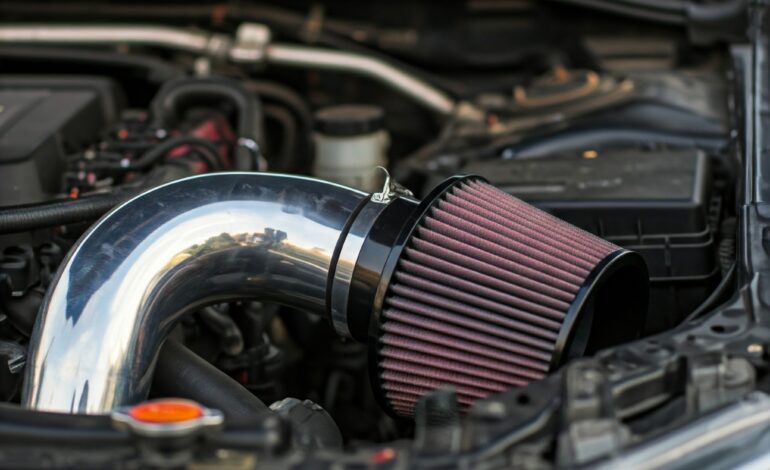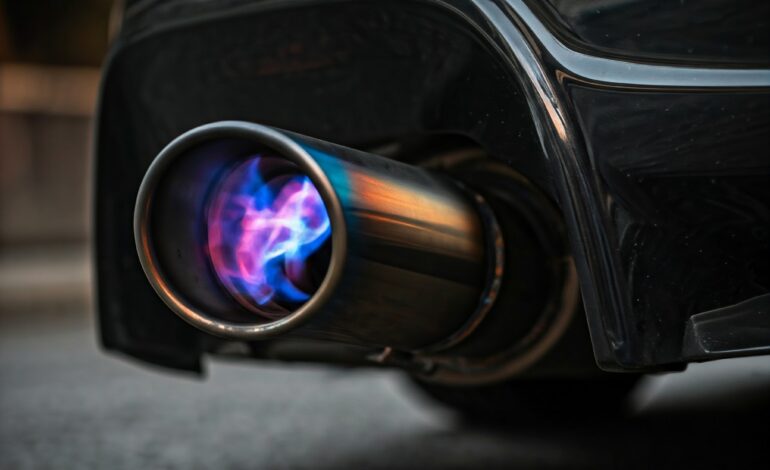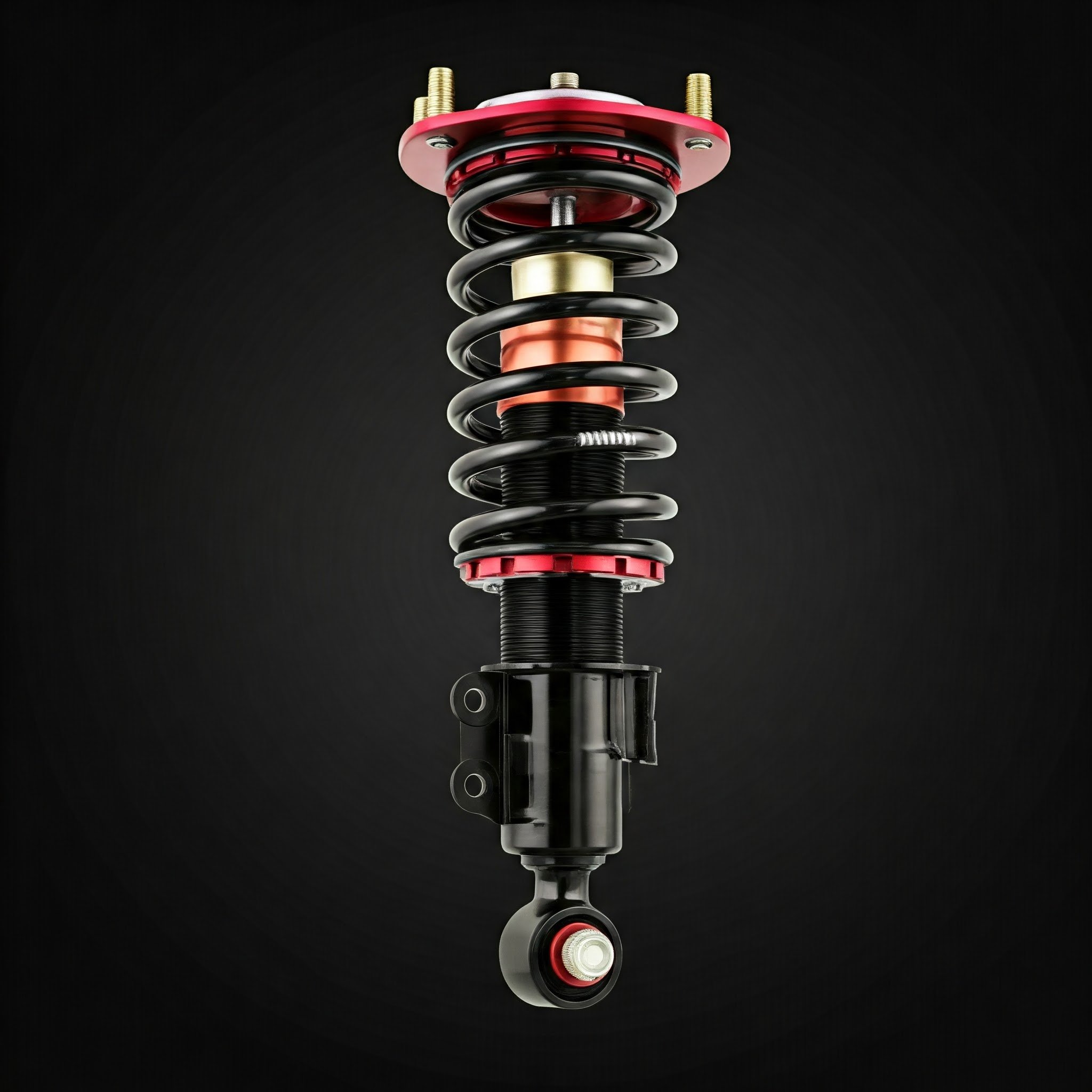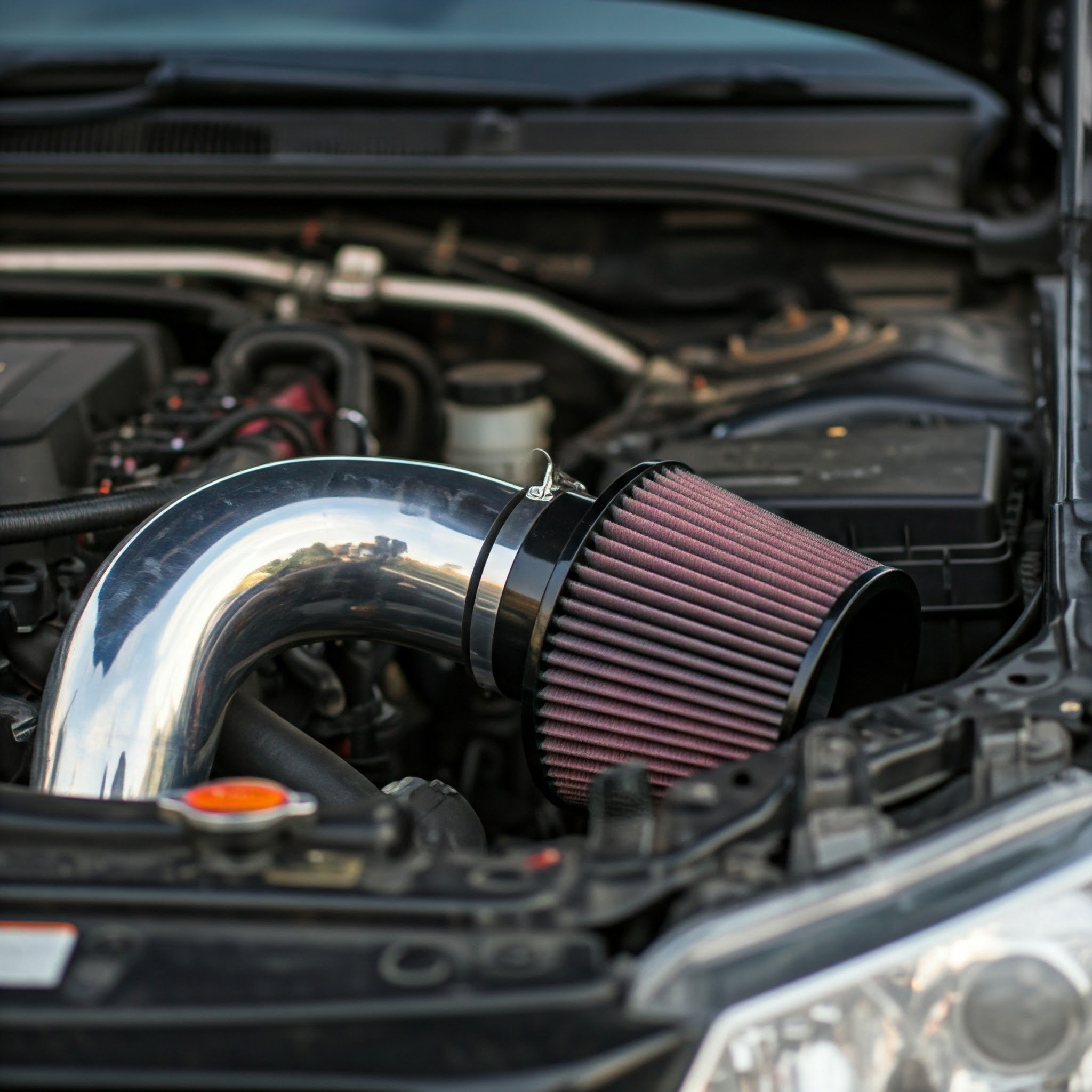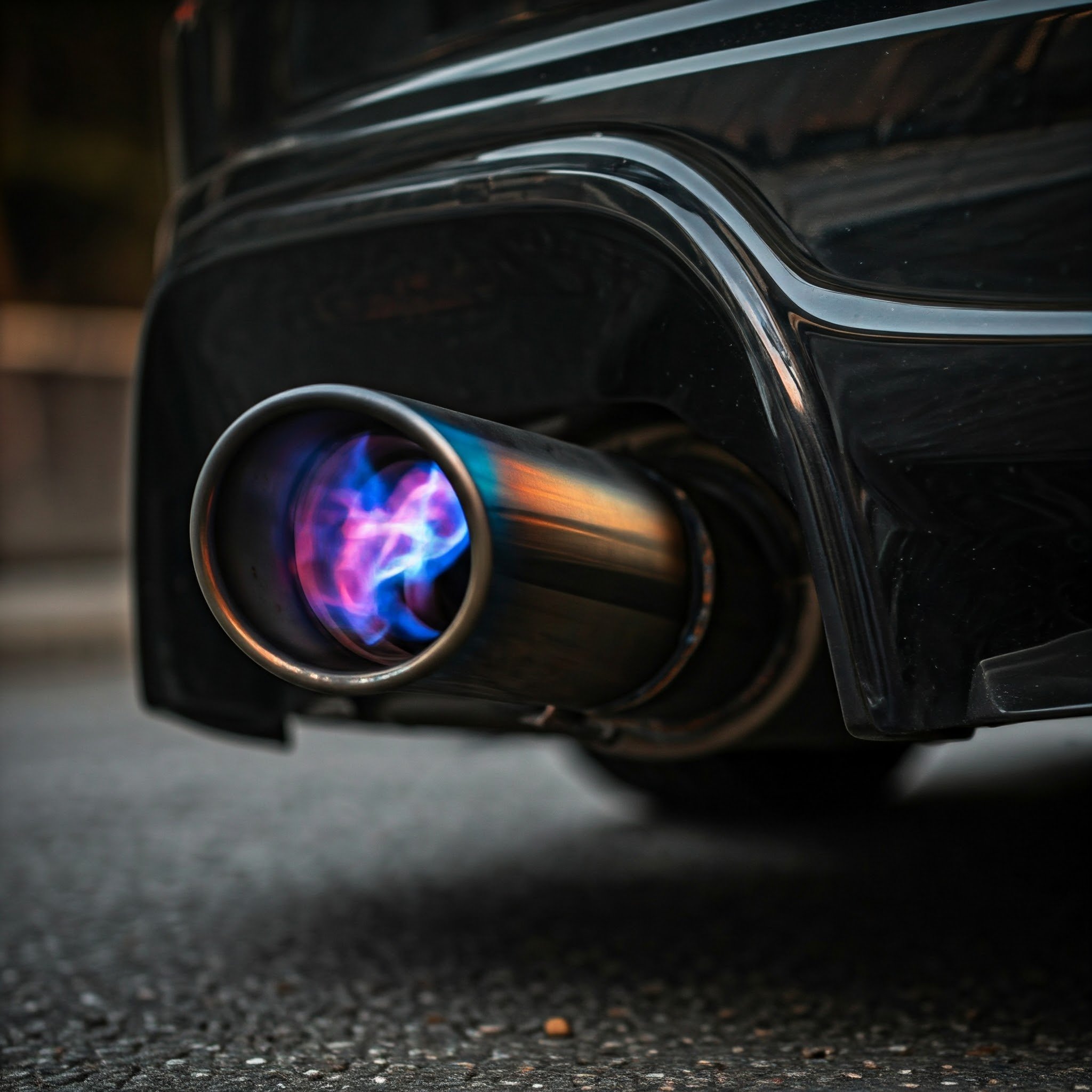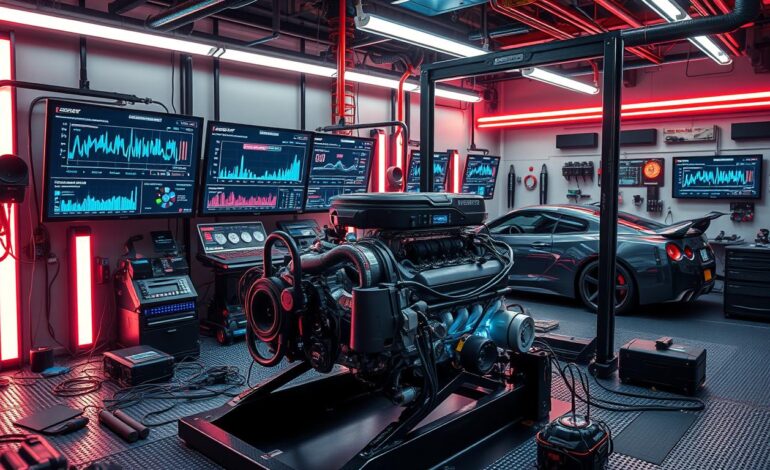
Tuning Your ECU for Optimal Engine Performance
ECU Tuning is key to boosting your car’s performance. It can make your car more powerful, efficient, and fun to drive. By tweaking your engine’s computer, you can make your car run better and feel smoother.
ECU Tuning means changing your car’s engine control unit settings for better performance. It needs a good understanding of engine tuning and special tools and software. With the right tools, you can make your car use less fuel, go faster, and perform better overall.
Whether you love cars or just want a better daily drive, ECU Tuning is a smart choice. It makes your car more responsive and efficient. In this article, we’ll dive into ECU Tuning and engine tuning. We’ll give you the info you need to upgrade your vehicle.
Key Takeaways
- ECU Tuning can significantly improve your vehicle’s performance and efficiency
- Engine tuning requires a deep understanding of engine settings and specialized tools
- Optimizing your engine’s computer can unlock its full potential
- ECU Tuning can improve fuel efficiency and increase horsepower
- Specialized software and tools are required for effective ECU Tuning
- ECU Tuning can enhance the overall driving experience
Understanding ECU Basics
To understand ECU optimization and its effect on car performance, knowing the basics of an Engine Control Unit (ECU) is key. The ECU is the car’s brain, managing things like fuel injection, ignition timing, and boost pressure in turbocharged engines. This system helps the engine run well, giving the best car performance.
For ECU optimization, knowing how the ECU controls engine performance is vital. The ECU uses data from sensors like temperature, air flow, and throttle position. It calculates the best fuel injection and ignition timing. This ensures the engine runs smoothly, giving the best car performance.
What is an ECU?
An ECU is a computer that controls and monitors the engine’s functions. It makes sure the engine runs efficiently, giving the best car performance and reducing emissions.
How ECUs Control Engine Performance
ECUs control engine performance by adjusting fuel injection, ignition timing, and boost pressure. They use a complex system of sensors, actuators, and software. By optimizing these parameters, ECU optimization can greatly improve car performance.
Stock vs. Modified ECU Settings
Stock ECU settings aim for a balance between car performance and emissions. But, modified ECU settings can boost car performance, giving more power and efficiency. It’s important to note that modified ECU settings might not work on all vehicles and could void the warranty.
Understanding ECU optimization basics and its impact on car performance helps vehicle owners make smart choices. Whether it’s to enhance car performance or cut emissions, ECU optimization is key in engine tuning.
Benefits of Professional ECU Tuning
Professional ECU tuning boosts power, improves fuel use, and makes driving better. It makes the ride smoother and more fun. This is done by fine-tuning the engine’s computer to match the car’s parts.
Some big pluses of professional ECU tuning are:
- It makes the engine run faster and feel better to drive.
- It saves fuel, which cuts costs and helps the planet.
- It makes the engine and its parts last longer.
Experts use special tools and software to tweak the ECU settings. They consider the car’s type, model, and how it’s used. This custom approach makes the engine tuning perfect for each car, boosting its performance.
Getting professional ECU tuning lets drivers get the most out of their cars. It makes driving more powerful, efficient, and fun. With the right tools and knowledge, ECU tuning is a smart choice for car lovers.
| Benefit | Description |
|---|---|
| Increased Power | Improved engine performance for faster acceleration |
| Improved Fuel Efficiency | Enhanced fuel economy for cost savings and reduced environmental impact |
| Enhanced Drivability | Smoother and more responsive ride for a more enjoyable driving experience |
Essential Tools and Equipment for ECU Tuning
ECU tuning is all about making your car run better. It involves changing the engine control unit to boost performance. Technicians use special tools to tweak the car’s settings.
For ECU tuning, you need diagnostic tools, software, and hardware interfaces. These tools help check the car’s current state and make improvements. Specialized software lets technicians adjust the ECU settings. Hardware interfaces connect the car to the tuning gear, allowing data exchange.
Diagnostic Tools
Some key diagnostic tools include:
- OBD-II scanners
- Engine analyzers
- Performance meters
Software Requirements
ECU tuning software is made for specific cars and engines. Popular choices are:
- ECU tuning suites from Bosch and Siemens
- Aftermarket software from AEM and Cobb Tuning
Hardware Interfaces
Hardware interfaces are vital for linking the car to tuning gear. They include:
| Interface Type | Description |
|---|---|
| OBD-II cable | Connects the vehicle to the tuning equipment via the OBD-II port |
| USB adapter | Enables communication between the vehicle and the tuning software |
With the right tools, technicians can make your car run better. Whether you’re a pro or a car enthusiast, good ECU tuning tools are key to success.
Common ECU Tuning Methods
There are many ways to engine tune, each with its own benefits. These include chip tuning, reflashing, and piggyback tuning. These are all ways to ECU optimize. Knowing about these methods helps pick the best one for your car and goals.
Here are some common ECU tuning methods:
- Chip tuning: replaces the car’s ECU chip with a new one for better performance
- Reflashing: updates the car’s ECU with new software
- Piggyback tuning: adds a secondary ECU to the car’s stock ECU for better performance
Each method has its own advantages. They are good for different cars and tuning needs. By choosing the right method, you can get the best engine tuning and ECU optimization. This leads to better performance and efficiency.
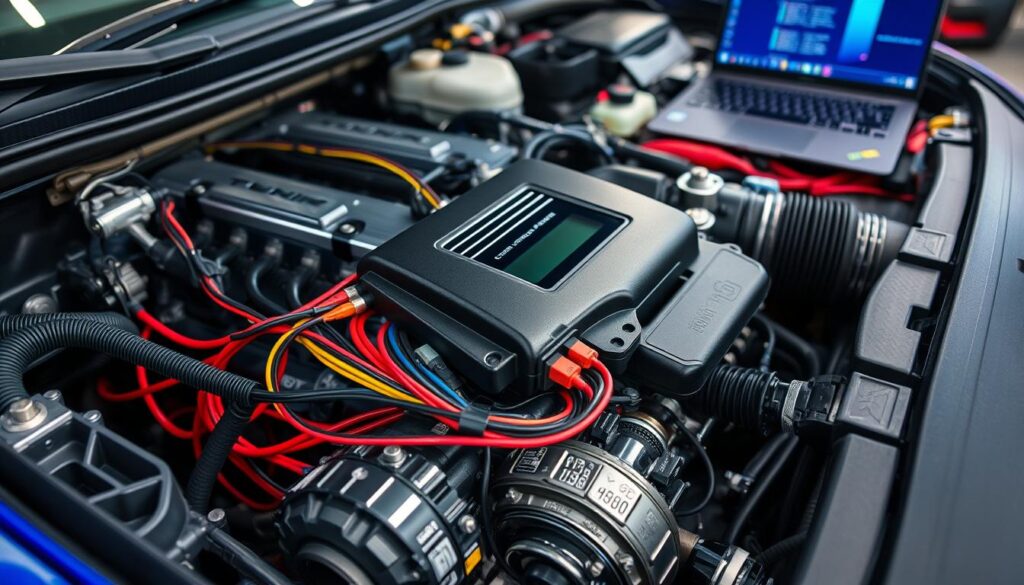
Performance Parameters You Can Modify
ECU tuning lets you change several performance parameters to boost your car’s performance. These adjustments create a unique driving experience. By tweaking them, you can greatly improve your vehicle’s performance and efficiency.
Some key parameters you can modify through ECU tuning include:
- Fuel mapping: This involves adjusting the amount of fuel injected into the engine to optimize performance and efficiency.
- Ignition timing: This parameter controls when the spark plug ignites the fuel in the engine, which can impact power output and fuel efficiency.
- Boost control: This parameter is used in turbocharged engines to control the amount of boost pressure, which can significantly impact power output.
- Rev limits: This parameter controls the maximum engine speed, which can help prevent engine damage and improve overall performance.
By adjusting these parameters through ECU tuning, you can tailor your driving experience. Whether you want better fuel efficiency or more power, ECU tuning can help. It enhances your car’s performance to meet your needs.
It’s important to have a professional do ECU tuning. They have the skills and tools to make safe and effective changes. A pro will ensure your vehicle operates safely and efficiently.
| Parameter | Description |
|---|---|
| Fuel Mapping | Adjusting fuel injection to optimize performance and efficiency |
| Ignition Timing | Controlling spark plug ignition to impact power output and fuel efficiency |
| Boost Control | Controlling boost pressure in turbocharged engines to impact power output |
| Rev Limits | Controlling maximum engine speed to prevent engine damage and improve performance |
Safety Considerations and Risks
When you’re into engine tuning and ECU optimization, safety is key. Wrong tweaks can harm your engine, lower performance, and pose safety risks. It’s vital to know the dangers and take steps to avoid them.
Some risks with ECU tuning include:
- Engine damage from bad fuel mapping or timing
- Lower performance and fuel use
- Engine overheating or failure risks
To avoid these risks, choose a trusted tuner. Make sure all changes are documented and can be undone. Also, keep an eye on your engine’s health to catch problems early.
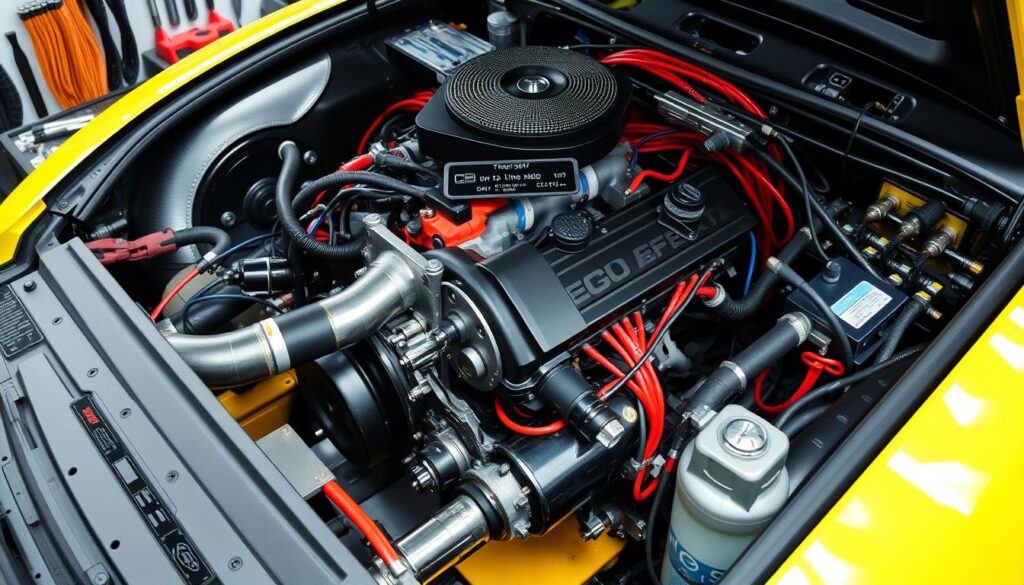
Knowing the safety risks lets you enjoy ECU optimization safely. Always put safety first and protect your engine for the best performance.
ECU tuning is complex and needs careful handling.
Legal Implications of ECU Modifications
ECU tuning boosts car performance, but it’s important to think about the legal side. It can change a vehicle’s emissions, warranty, and how it meets state laws. Knowing this helps avoid legal trouble and keeps the vehicle legal.
ECU tuning can change a vehicle’s emissions. Not following emissions rules can lead to fines. Also, it can affect the warranty. It’s key to know the warranty terms before making changes.
Emissions Regulations
Emissions rules differ by state. It’s vital to follow these to avoid legal problems. Some states have strict emissions standards. ECU tuning can help meet these standards. But, make sure any changes follow federal and state rules.
Warranty Considerations
Changing a vehicle’s ECU can affect the warranty. It’s important to know the warranty terms before making changes. Some makers might cancel the warranty if they find modifications. Others might allow changes if they meet certain standards.
State-Specific Laws
State laws control vehicle modifications. It’s important to follow these laws to avoid legal trouble. Some states limit certain modifications, while others require specific emissions standards. ECU tuning can help meet these standards. But, make sure any changes follow state laws.
Monitoring Your Engine After ECU Tuning
After ECU tuning, it’s important to watch your engine closely. This ensures it’s running well. Look out for key signs and warning lights. Regular checks can prevent problems and extend your engine’s life.
Keep an eye on fuel efficiency, horsepower, and torque. Use diagnostic tools to track these. This helps spot issues early. ECU optimization is key in fine-tuning your engine’s performance.
Key Performance Indicators
- Fuel efficiency
- Horsepower
- Torque
- Engine temperature
Warning Signs to Watch For
Be on the lookout for warning signs like unusual noises or decreased performance. Dashboard lights can also signal trouble. If you see these signs, act fast. Engine tuning and ECU optimization can help avoid these issues.
Regular checks and awareness of warning signs can keep your engine running well. Engine tuning and ECU optimization boost fuel efficiency and performance. They’re a smart choice for any car owner.
| Indicator | Normal Range | Warning Sign |
|---|---|---|
| Engine Temperature | 195-220°F | Above 220°F |
| Fuel Efficiency | 20-30 mpg | Below 20 mpg |
| Horsepower | 150-200 hp | Below 150 hp |
Common Mistakes to Avoid During Tuning
When tuning your car’s ECU, it’s important to avoid common mistakes. Insufficient data logging can lead to wrong adjustments and lower performance. Also, making incorrect fueling adjustments can harm your engine and reduce your car’s performance.
To steer clear of these errors, follow best practices for ECU tuning. Here are some common mistakes to avoid:
- Insufficient data logging
- Incorrect fueling adjustments
- Failure to test the vehicle under various conditions
Knowing these pitfalls helps car owners avoid expensive mistakes. They can get the performance boost they want safely and effectively with proper ECU tuning.
| Mistake | Consequence |
|---|---|
| Insufficient data logging | Inaccurate adjustments and decreased performance |
| Incorrect fueling adjustments | Damage to the engine and decreased car performance |
| Failure to test the vehicle under various conditions | Inadequate tuning and possible engine damage |
Professional vs. DIY ECU Tuning
Choosing between professional and DIY ECU tuning can be tough. Both have good points and downsides. Professional tuning gives you precision and safety, while DIY might save money.
The cost is a big factor. Engine tuning can be expensive, but quality matters. Professional services cost more but offer better results. DIY tuning, though cheaper, needs a lot of time and money for tools and learning.
Cost Comparison
- Professional tuning services: higher upfront cost, but more accurate results
- DIY tuning: lower cost, but needs a lot of time and money for tools
It’s also important to think about risk and time. ECU optimization is complex, and DIY can risk engine damage. Professionals know how to avoid these problems.
Risk Assessment
Choosing depends on your budget, skills, and what you value most. If quality and safety are key, go for professional. But if you’re on a tight budget and can learn, DIY might work for you.
Conclusion
ECU tuning is a powerful way to unlock your car’s full performance. It lets you understand and tweak engine control units. This way, car lovers get a better, more exciting drive.
Deciding to have a pro do the tuning or do it yourself is up to you. The important thing is to be careful and follow the law. Keep an eye on your engine and listen to any warning signs. This ensures your car stays safe and runs well.
Getting your car to its best performance is all about making smart choices. It’s about knowing the right balance between power and safety. Start your ECU tuning journey with confidence. Let your car show its true strength.

